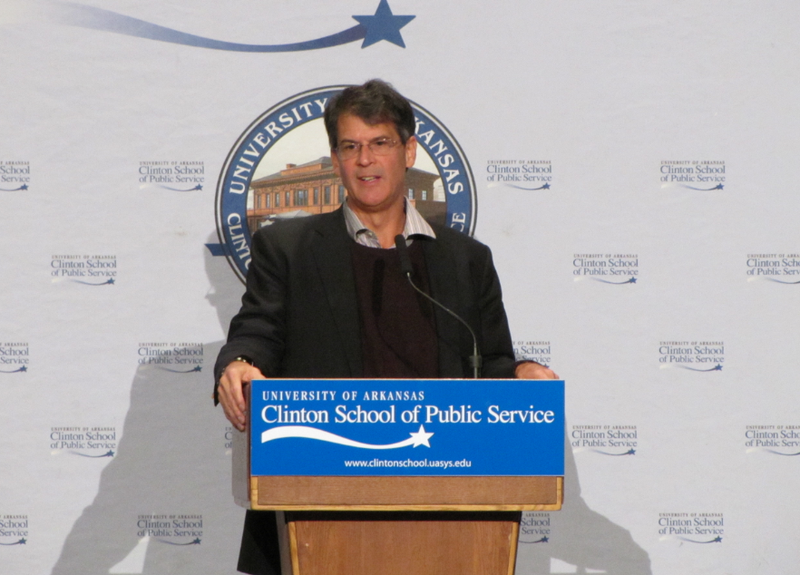A neurosurgeon who wrote a book detailing his spiritual awakening after a near-death experience and recovery from a usually deadly form of bacterial meningitis on Wednesday described his vision of the afterlife for a Little Rock crowd.
Dr. Eben Alexander, whose book "Proof of Heaven" rose to the top of the New York Times bestsellers list, spoke in a Clinton School of Public Service lecture at the Statehouse Convention Center, where it was moved to accommodate "overwhelming demand," organizers said.
Alexander recalled contracting the rare form of meningitis and quickly falling into a coma that he said most sufferers don't survive, and from which virtually no one recovers.
But Alexander did, slowly regaining his words and memories to tell of traveling beyond his own consciousness into a heaven-like, euphoric state.
Alexander noted that his medical background before all that assured him the state he was in was the "last step before your brain and consciousness blinks out of existence," but he now knows that's "dead wrong."
"Because in fact, what came next was a spinning, white light," he said Wednesday, which he noted marks five years since the week of his coma. "A perfect musical melody that opened up into a rich, idyllic valley. Beautiful butterflies, a beautiful girl on the butterfly wings, souls dancing below, angelic choirs above. Joy and mirth beyond description."
Alexander's book has generated some criticism and skepticism, including an account in Esquire earlier this year that called into question some purported inconsistencies.
He didn't touch on any of the criticism during his lecture, but Alexander said during it that he wrote the book to find out what happened. Nothing could explain it other than a spiritual experience outside of his own consciousness, he said.
"What is so powerful is working with colleagues, working with my doctors, going through my medical records in detail trying to explain it as some hallucination, some dream, some drug effect — at the end of the day we were absolutely unable to do that," he said. "There was no way to explain it as a brain-based mechanism."
